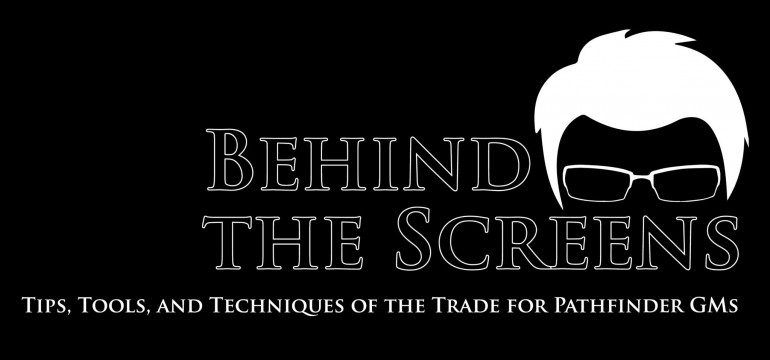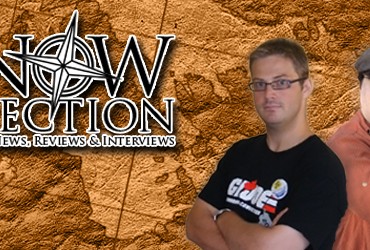Today’s article was supposed to be my initial impressions of Ultimate Intrigue’s Social Combat chapter. I’ll get to my review of Ultimate Intrigue’s contents in later posts. There’s a lot of good stuff in there and it needs to be talked about. But that’s not what I want to talk about today. Instead I want to talk about some of the social challenges we’re facing as a community. How apropos.
Recently there’s been a number of individuals within the gaming community who have come forward to bravely share experiences of harassment, assault, and aggression directed at them by fellow gamers. This isn’t a new phenomenon. Not even close. The ugly reality is that for however inclusive geek/gamer culture professes itself to be, there are individuals within our community who do and say terrible things. Things that reflect badly on the rest of us. Things that ostracize, alienate, and demean. Things that degrade, violate, and harm. Things that – due to the nature, structure, and systematic organization of our community and the society in which it exists – they can get away with. Many have come out in support and in solidarity with the individuals bringing these transgressions to light. But just as numerous are those who exhibit anything from casual disregard to outright revilement.
That isn’t acceptable.
She faces more harassment traveling from her hotel room to the convention room floor than I probably will in my entire life.
My personal gaming community bubble is fairly small. I frequent only a handful of local gaming stores in my area. I’ve only recently begun attending some of the larger gaming conventions around the country. Most of my tabletop gaming has been in the quiet comfort of my own home with my own select group of favorite humans. Wrapped up in my own enjoyment of the hobby, I have never personally experienced the kind of negativity or harassment that others are affected by. As an Asian-American, heterosexual, male I have the privilege of being able to show up at a FLGS game day or a convention and not immediately have to worry about my inclusion, the objectification of my body, or even my own sexual agency. As a female-bodied friend expressed to me, she faces more harassment traveling from her hotel room to the convention room floor than I probably will in my entire life.
That isn’t acceptable.
Generally speaking, it’s a there’s never been a better time to be a geek and a gamer. Mainstream culture has absorbed our various fandoms like never before. Our interests are trendsetting, our passions are the mode. The community at large has never been more diverse and inclusive. But things could get better. And all the progress we’ve made doesn’t change the fact that there are unsavory or even wicked individuals among us. And that many, too many, still seem to choose to side with the predators rather than the victims.
That isn’t acceptable.
Because when a woman, person of color, or other individual from a traditionally marginalized portion of society speaks up about a personally experienced injustice the overwhelming reaction from the community shouldn’t be one of apathy, incredulity, or downright hostility. Because when someone says, “I don’t feel safe,” the overwhelming response shouldn’t be, “then leave.” Because when a friend comes to you and says that something terrible happened to her your immediate reaction should be. “How can I help?”
Sometimes it’s enough just to listen. Sometimes it’s enough just to be there. Sometimes it’s enough just to acknowledge and validate her experience. But doing anything less isn’t acceptable.
Edit (10/20/17):
In light of recent events I’ve been inclined towards self-examination of my own past attitudes and behaviors. I wrote this article over a year ago in response to the absurd and hateful backlash against female-identifying gamers who dared to step forward to tell their stories.
In rereading this, I recognize that there’s more that needs to be said. There’s a problem here that runs deeper than just a handful of predatory animals in a niche hobby. It’s a culture and society that enables and encourages the actions of predatory individuals. It’s not enough to be a passive protector. It’s not enough to simply stand by and try and help post factum.
It’s important to acknowledge those around us who have been victims.
“I see you. I believe you.”
That’s an important statement. But we need to do more than that. So much more…
That we haven’t done more, that isn’t acceptable.
Anthony Li is a gamer and a human being. He believes in the intrinsic decency in each of his fellow human beings. He doesn’t consider himself a champion for anything besides basic human decency, respect, and compassion. While he has never personally experienced the types of injustices or challenges his fellow gamers have faced, he has known of and maintains relationships with individuals who have. And it is with those individuals he proudly stands.






Would you guys consider having an episode that discusses appropriate behavior at the table, and how a GM should handle it? GMing 101 has a section on how to handle troublesome players, but I feel that there is more to explore.
I’d especially appreciate if some of the PFS leadership was part of that conversation to lend it credibility.
Hey Ken,
Since we were talking with PFS Leadership tonight, we ran the question by them and they answered it on air. The recordings will be available soon, but here was the gist:
1) If anything like this happens, report it up the ladder to your venture officer, and they’ll kick it up the ladder until it can be resolved. There aren’t a lot of one size fits all answers, so each event will be handled individually.
2) IF (and we hope that this never is the case) the venture officer is the source of the inappropriate behavior, contact Tonya Woldridge directly. And if you’re not comfortable talking with Tonya, then contact anyone on the team you are comfortable approaching.
3) They can not address CRIMINAL behavior, so if things have become so serious that it is indeed criminal, law enforcement needs to be involved directly. Do not take it lightly.
They made it clear that this was an important issue to them, and PFS is explicitly and inclusive environment and they intend on keeping it that way. Paizo’s track record on this speaks for itself.
They will also be covering this issue in depth at PaizoCon panels this year, and we will be recording those panels and posting them to our network.
If you’ve got any more questions, please feel free to contact Me, Ryan, Alex, Anthoni or Paizo as appropriate. This is an issue we care deeply about.
Glad to hear this, and I hope to hear this podcast soon!
Well said Anthony. I started gaming in the early 1980’s and it wasn’t “cool” to be a gamer and it has come a long way but excluding/harassing someone for any reason (race/religion/size/etc.) just should not be done. Ever.